The powerful change that technology can bring
In Zimbabwe, simple, eco-friendly technology opens opportunities for more time, income and empowerment for women.
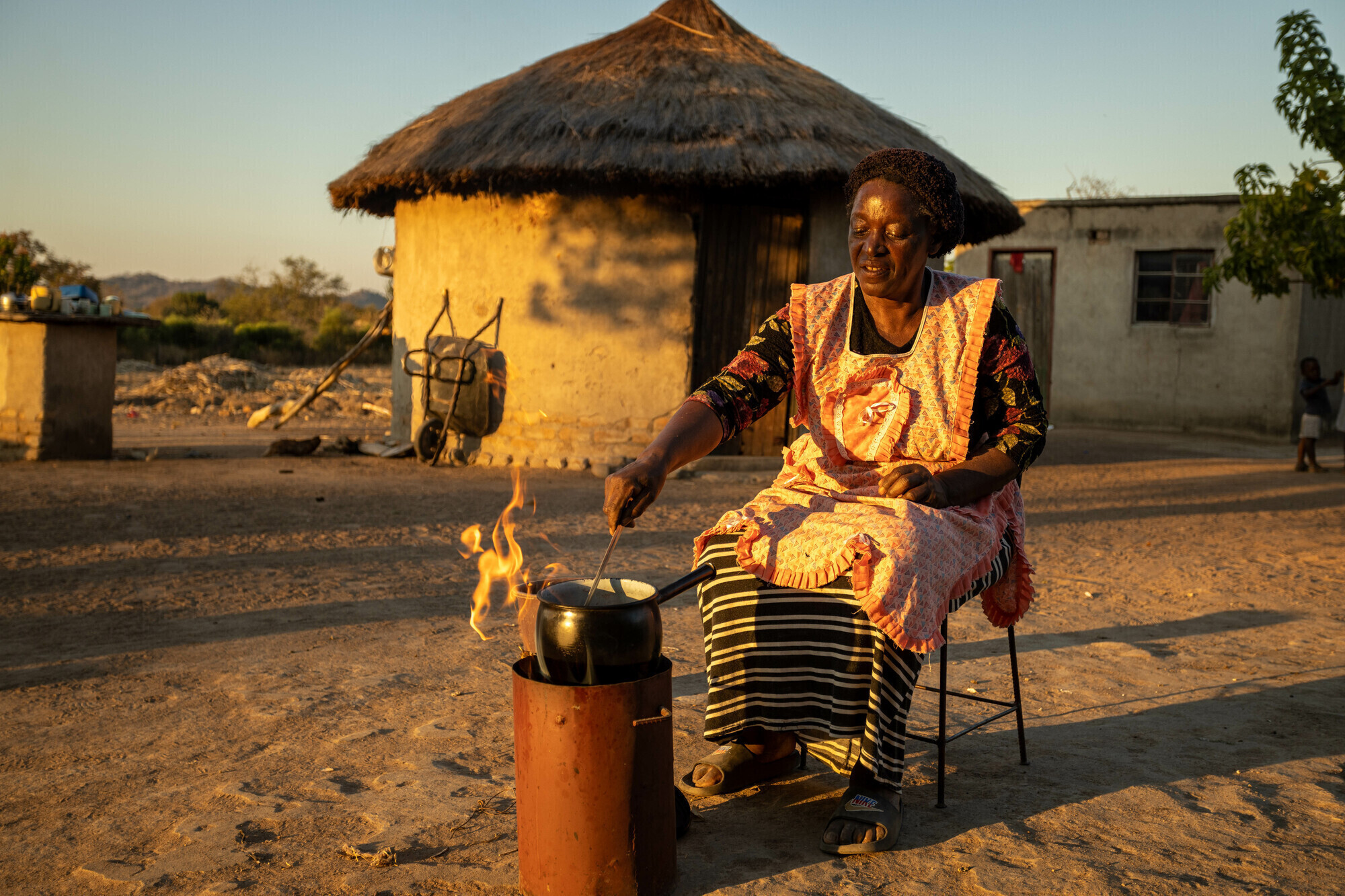
The fuel-efficient stove in Ntombizodwa Mapfacha’s dirt courtyard in Mwenezi District, Zimbabwe, doesn’t look like a life-changing piece of technology. It looks like a 2-foot high, round metal can.
Nevertheless, this sturdy stove not only cooks a traditional, family-size meal of sadza (thick cornmeal) and beans. It also is empowering Mapfacha and other women in Mwenezi District.
No longer does Mapfacha have to walk six miles every other day to find firewood in the mountain, where she is wary of poisonous snakes and men who could take advantage of her in the remote area. The new stove cooks with just a few pieces of wood and dried corn cobs, which she can gather close to home.
No longer does she need to stay by an open fire, her lungs and eyes burning from smoke, tending and feeding it for the two to three hours it takes to cook a meal.
She only needs to peek into the stove periodically to make sure the fire’s direct heat is keeping the beans simmering in the pot. And the stove is portable, giving her freedom and time to pursue work that generates income for her family. She grinds groundnuts into nut butter to sell and collects fruit to sell or eat. And she spends more time working with her husband in the field, increasing the amount of produce they sell.
In 2021, MCC’s partner, Score Against Poverty (SCORE), introduced a clean energy pilot project designed to empower women while addressing climate change.
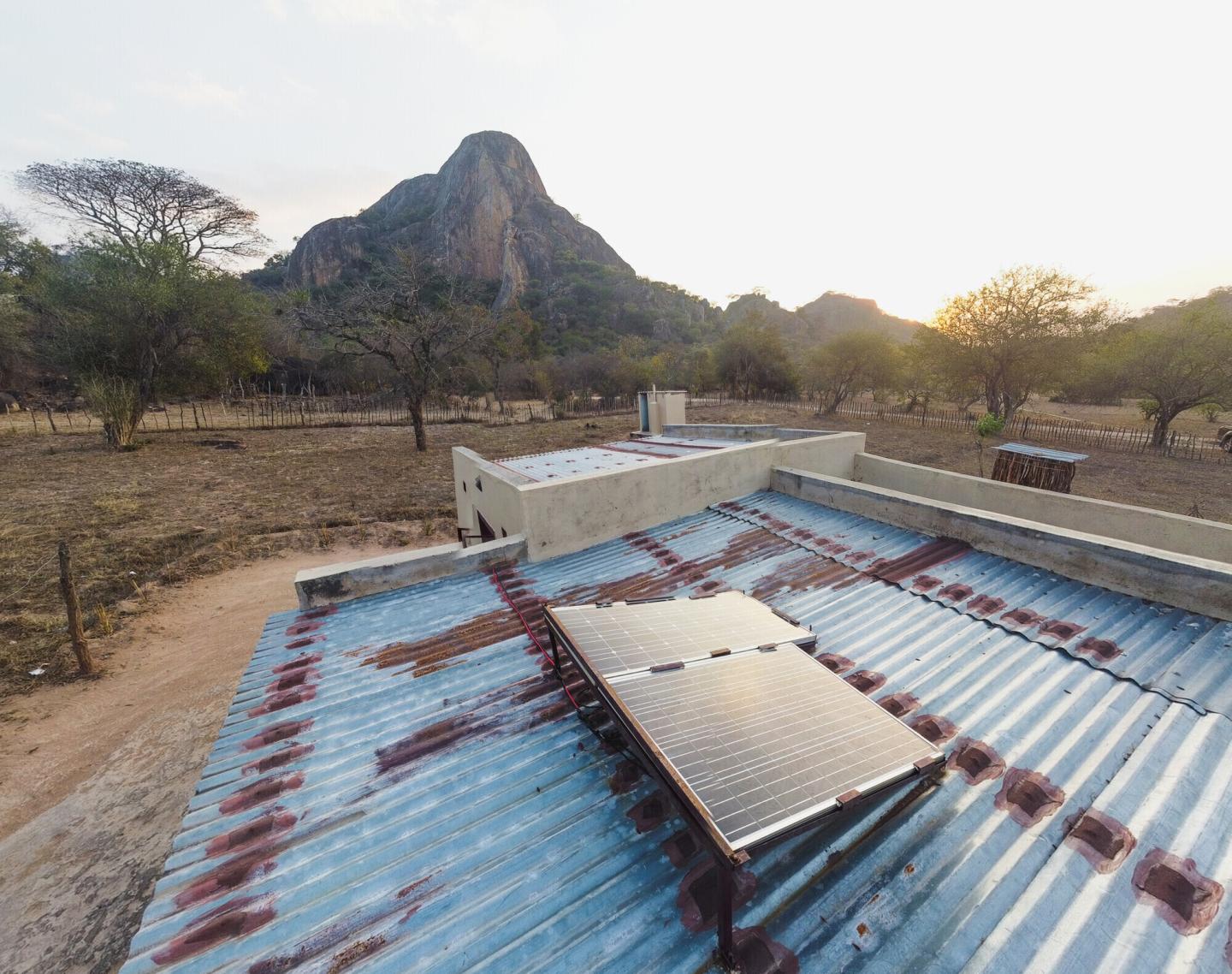
The project provided 50 fuel-efficient stoves to women, as well as solar power systems and biogas digesters that process manure into gas for cooking and other uses.
In this rural area of southern Zimbabwe, SCORE staff see the impact of climate change — inconsistent rain, high heat, unpredictable growing seasons, heavy flooding — as one of the biggest threats to life in their community.
In response, they are helping farmers learn more about the threats, change the way they farm and plant more trees.
And, at the same time, they are addressing gender inequities which cause women to bear the brunt of the impact.
Women are expected to grow the food they cook for their families and collect increasingly scarce firewood and water. They are fully responsible to care for children and the homestead.
If their husbands migrate to look for work, women’s responsibilities grow, but culturally they are not allowed to make decisions without their husbands, says Caroline Pugeni, project coordinator for SCORE. They lack resources and money to help them care for the family.
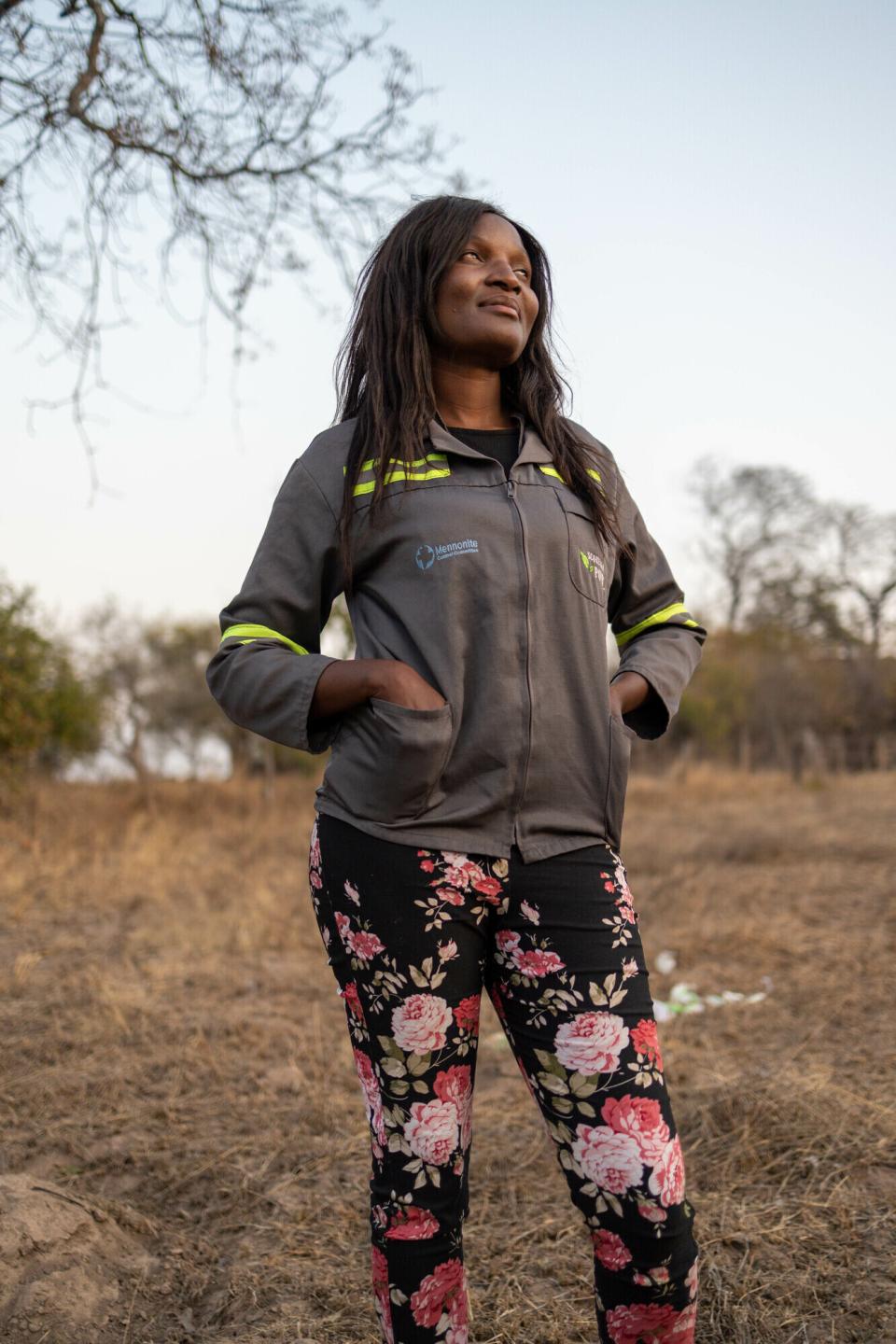
So SCORE decided to focus its clean energy project on women. The technology gives them opportunities to earn money, gain respect from their husbands and share what they learn about clean energy with their neighbors.
When we have empowered them, they can be able to stand on their own."
Tariro Cynthia Mutsindikwa
“When we have empowered them, they can be able to stand on their own, and also they can be able to have a voice in the house,” says Tariro Cynthia Mutsindikwa, SCORE’s project officer for the clean energy project.
As an engineer, she has customized the stoves using women’s feedback. She also adapted three biodigesters to their locations and installed solar power systems for 12 women, a school and a clinic. And her work on these projects, as a woman, helps mothers to think more widely about what their daughters can become, Pugeni notes.
At Juliana Hahlani’s house, solar power allows her son to do homework after dark. The power helps her operate a television, where she learns of happenings in the world she never knew about before and watches weather forecasts she uses in her farming.
When she and her husband can save enough to purchase a freezer, she plans to store popsicles to sell at a nearby school and freeze chicken parts to sell in the community.
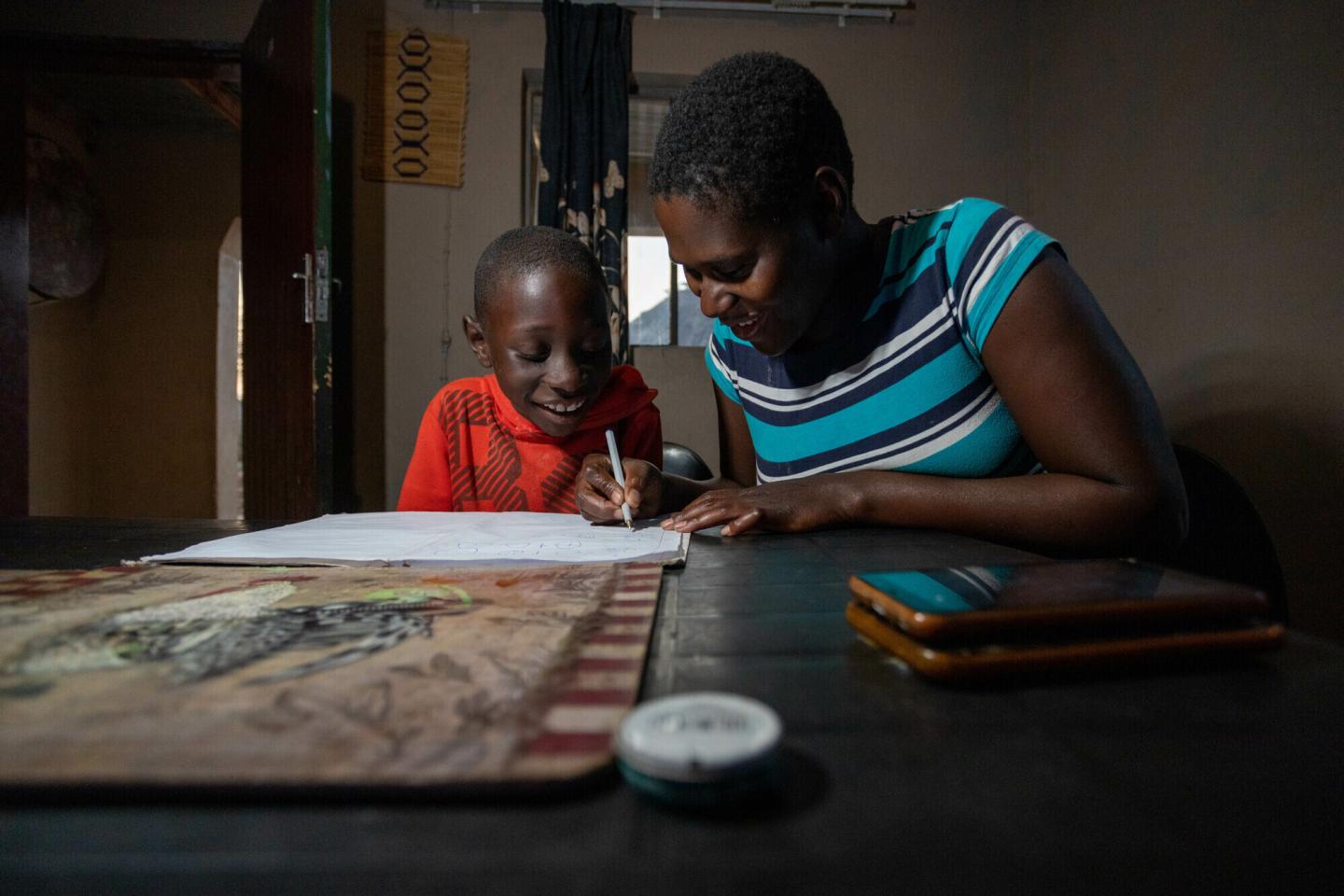
The solar lights that illuminate her courtyard help discourage thieves when her husband is working in South Africa. It also allows her to avoid snakes that could be deadly.
At Nehanda Clinic, a woman who was waiting to deliver a baby was bitten by a Black Mamba as she walked to the bathroom in the dark. After being rushed to a hospital, she and her baby survived.
But now, with solar power, women who are waiting in the clinic’s dormitory to deliver can see where they are going. The lights illuminate delivery rooms, addressing the challenges of working by candlelight to respond to complications like a breech baby or a mother’s hemorrhaging.
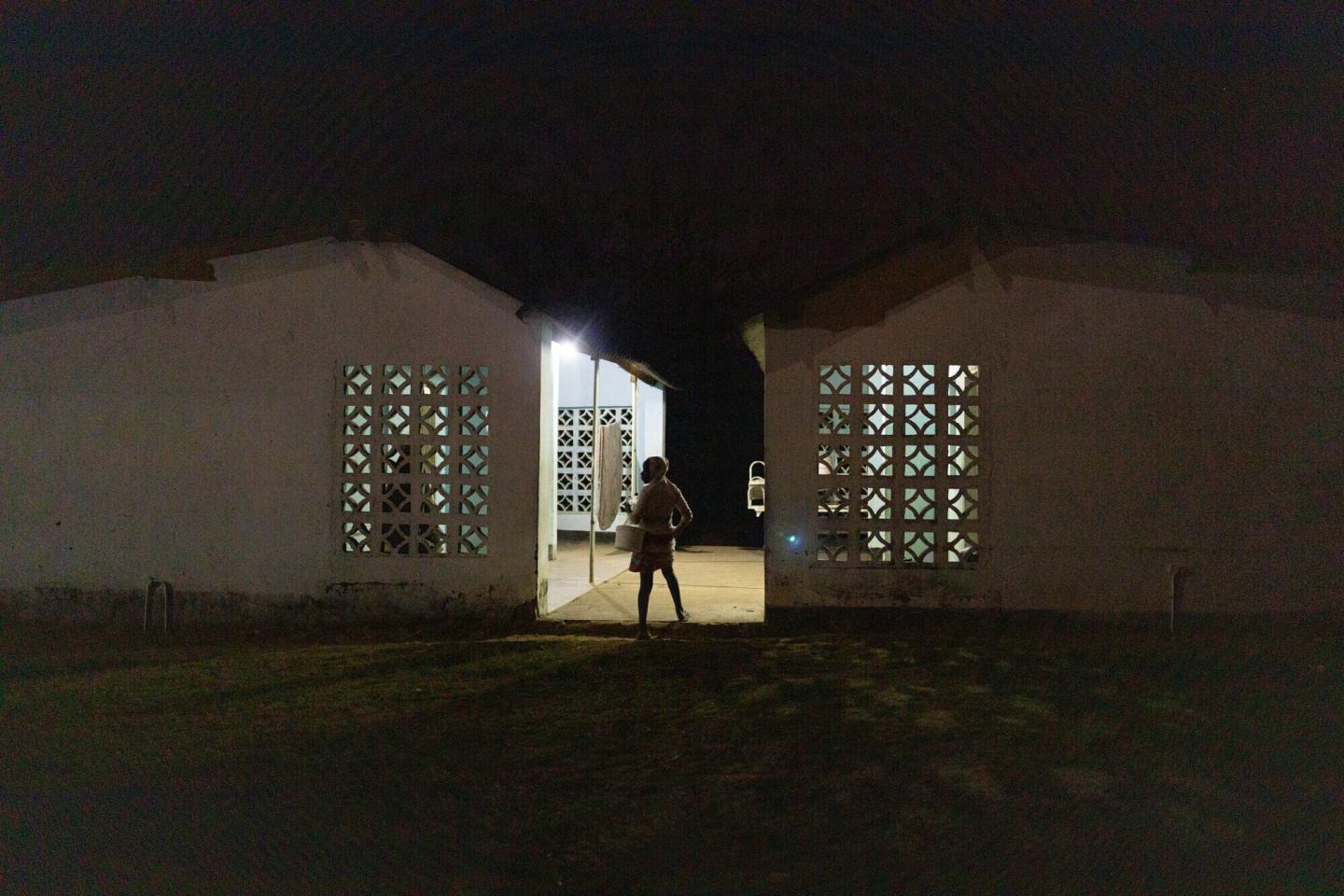
SCORE will help more women get stoves and solar power systems over the next two years, and Mutsindikwa hopes that more women will purchase their own technology as they see its effectiveness. They can do it, she says, if they take turns borrowing from community savings and loan groups SCORE has helped establish.
The stoves can cost as little as $22. Solar power systems and biodigesters cost more but can be scaled to meet budgets and essential uses, Mutsindikwa says. Solar systems also are built so that they can be expanded.
Each gain multiplies opportunities for farmers like Rebecca Murereki, a widow who uses manure from 18 cows on her son’s farm to power a biodigester.
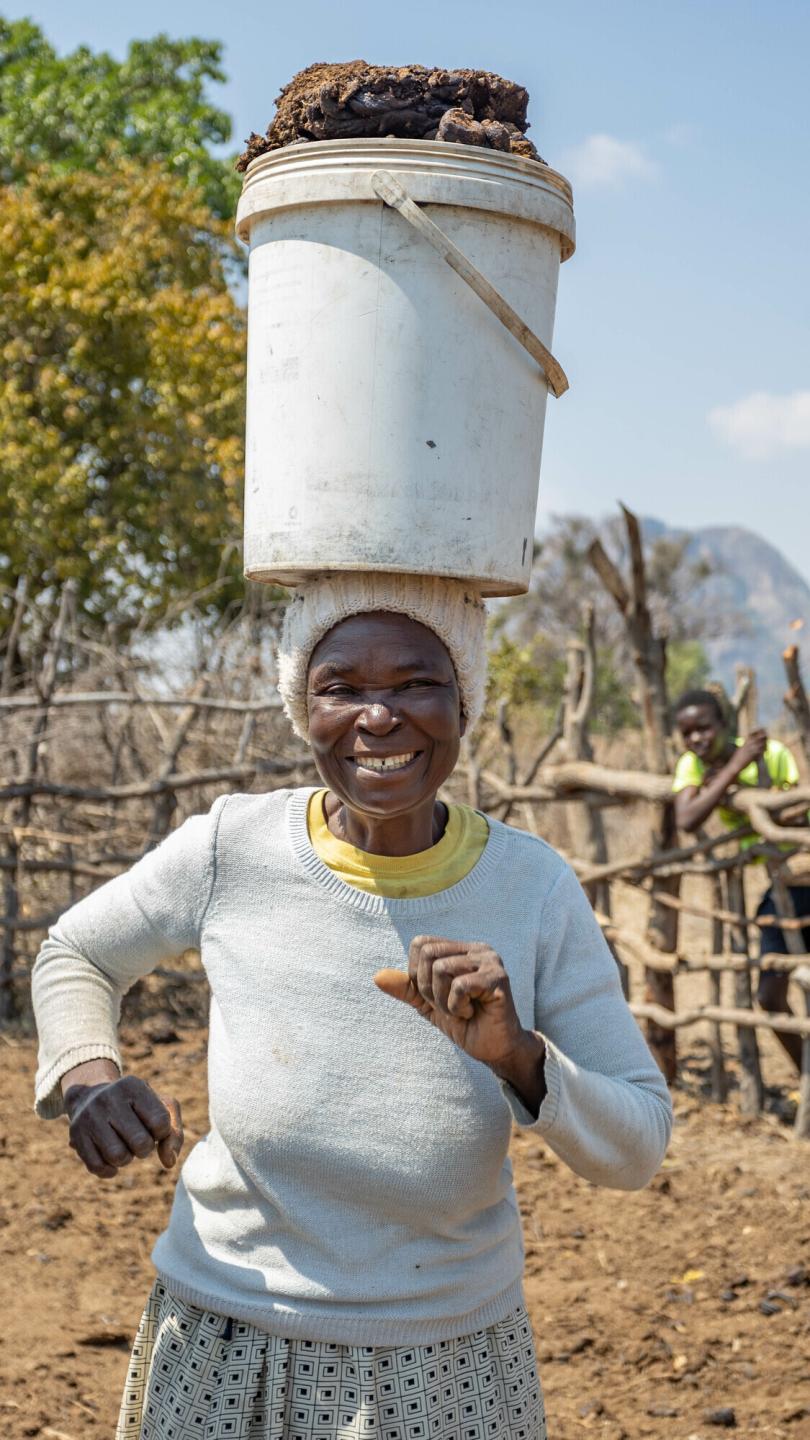
She collects three 5-gallon buckets of dried cow dung a day, mixes it with an equivalent amount of water and feeds it to the underground biodigester. The biodigester creates gas that is piped into her kitchen and to her two-burner gas stove. She, too, no longer needs to make a long trek to find firewood.
And the biodigesting process also creates a slurry that is a potent fertilizer that can be watered down three parts to one and spread on her fields.
Empowerment is giving voice, giving opportunities for people to choose what they want to do.”
Caroline Pugeni
project coordinator for SCORE
“I feel very happy,” Murereki says, as she demonstrates how quickly she can cook greens on her stove. “Cooking is easier for me. I can cook any time of day. My grandkids (seven live with her) can cook on their own. And I’m always clean instead of smelling like smoke.”
The biodigester also gives Murereki enough power to add lighting, refrigeration and irrigation and even sell the gas eventually.
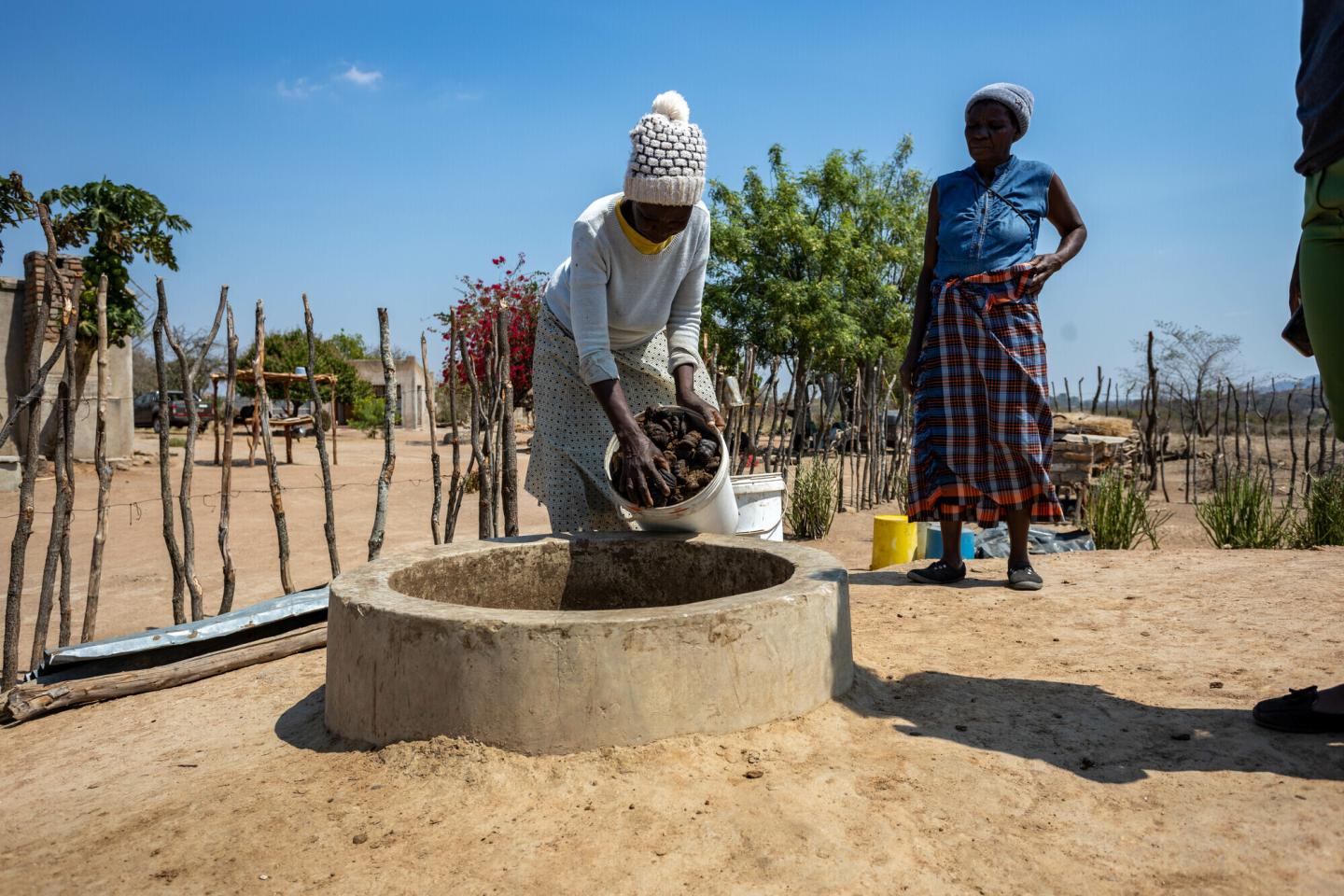
With the extra time she saves with this new stove, she is making grass mats to sell. She is able to fulfill her role as one of the first women on village council. And she also is helping to lead a SCORE-initiated community savings and loan group and taking part in SCORE’s Women’s Coalition on Climate Change.
These gains — in income, in leadership and in community engagement — are exactly the kinds of opportunities that SCORE is hoping to bring to women in Mwenezi.
“Empowerment is giving voice, giving opportunities for people to choose what they want to do,” Pugeni says. “Even to speak out for themselves confidently, access information. Explore the talents that they have.”
Top photo caption: Ntombizodwa Mapfacha stirs a pot of beans as she cooks on her fuel-efficient stove. The fire was just lit. The flames will soon subside, leaving the heat of the fire focused on the pot. With the fire contained, the stove cooks more efficiently and requires less firewood.
Give a gift where needed most
Every donation makes a difference.

